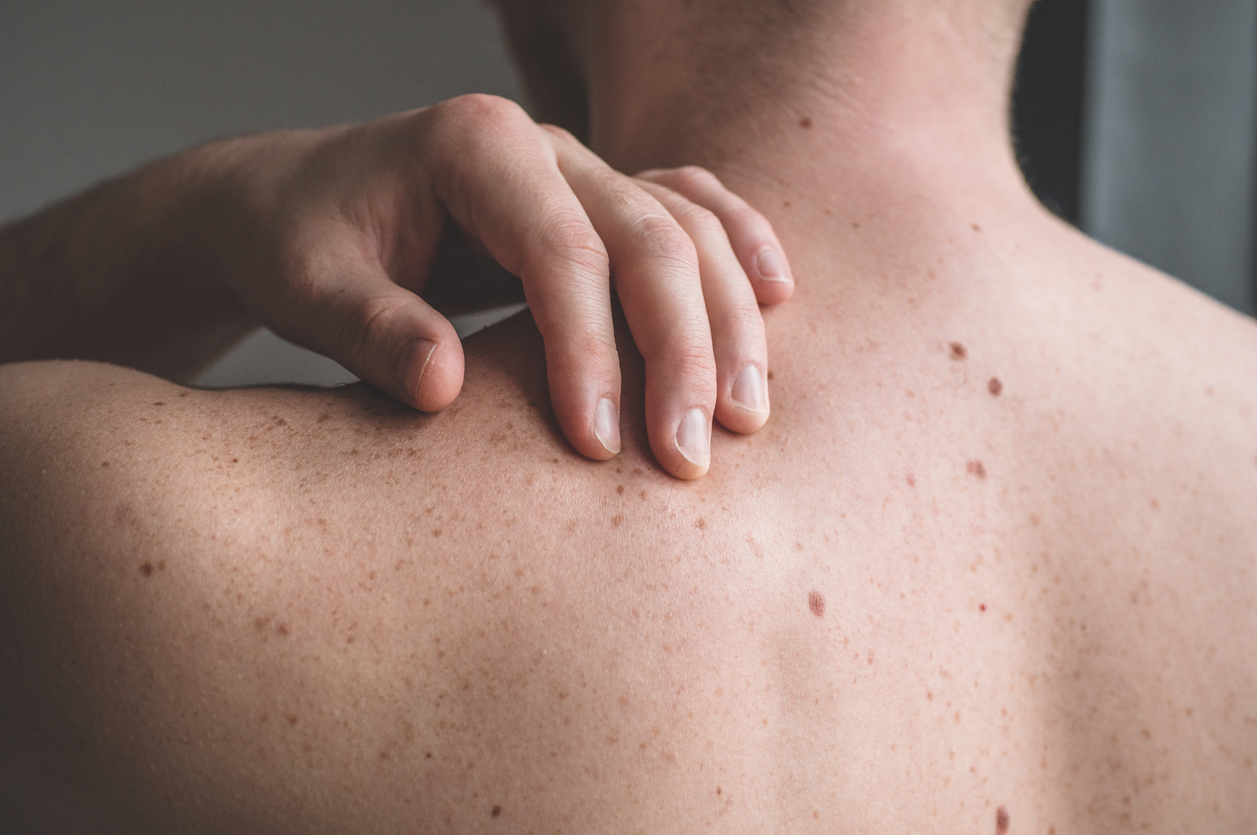By Professor Monika Janda and Professor Rachel Neale, Co-Chairs Skin Cancer Prevention Queensland
Early detection of skin cancer, in particular its deadliest form melanoma, is associated with higher survival and better health outcomes. Each year 28,000 in-situ (confined to the top layer of the skin) and 17,000 invasive cases of melanomas are diagnosed in Australia. Over 90% of melanomas can be successfully treated when diagnosed early.
Nearly all skin cancers are directly related to exposure to ultraviolet (UV) radiation. Protecting the skin from the sun’s UV radiation reduces the risk of developing skin cancer. Preventive sun safety actions can include reducing time outdoors during hours when the UV radiation is most intense, seeking shade, wearing broad-brimmed hats and protective clothing, such as long-sleeved shirts, wearing sunglasses, and applying sunscreen to exposed skin. People living in Australia are advised to apply sunscreen to the face, head, neck and all parts of the body not covered by clothing as part of their usual routine on days when the UV index is forecast to reach three or greater (1).
Hairdressers, barbers, beauticians, tattooists, massage and dermal therapists among others are professions which see a lot of skin in their daily work, so they are well placed to talk to clients about changes to the skin and provide sun safety advice. We are not aiming to teach these professions how to diagnose skin cancer, which is a job for qualified doctors. However, empowering them to give evidence-based advice about sun protection and to encourage their clients to get a skin check when they see a suspicious skin lesion can prevent disfiguring surgery and advanced treatments and potentially save lives. Currently, skin cancer education is not uniformly addressed in training curricula for these professions.
Skin cancer can affect all areas of the body, even where you least expect it such as the scalp. This is where a hairdresser could help play a part in skin cancer awareness, as they can easily view behind the ears or scalp on their clients. Scalp melanomas tend to be more aggressive and mortality rates are more than twice that of melanoma on other parts of the body (2). This may be due to scalp melanomas being located in a hard to see spot and are easily hidden by hair making them more difficult to self-detect.
Similarly, a tattooist providing a tattoo on an individuals’ back which is a hard to see location could talk to their clients about skin awareness if they have the skills to notice any suspicious spots. For example, simple conversations when a suspicious spot is found could include “How long have you had this?” “Has it changed in any way?” to prompt them to become aware of the spot, and then, “Have you ever had this mole examined by a doctor?” “The next time you see your doctor, why don’t you have you have him/her look at this for you?”
Skin Cancer Prevention Queensland and the Australian Skin and Skin Cancer Research Centre are holding an industry forum to discuss how we can equip the dermal, hair, tattoo beauty and wellness industries with the information and skills to start a conversation about skin changes that could help to detect skin cancer earlier and save lives. We want to help better educate professionals in these industries on:
- The risks of overexposure to UV radiation
- How to prevent skin cancer by practicing sun-safe behaviours
- How to identify suspicious lesions – including the three most common; basal cell carcinoma, squamous cell carcinoma and melanoma
- How to communicate concerns to clients and encourage them to have suspicious lesions assessed by a doctor.
We welcome anyone working in these industries to join us in-person or online. This forum brings together academic and research sectors, clinicians, government, non-profits and industry to talk about this important topic.
Helping these professions develop the skills and confidence to speak confidently with their clients about sun protection and how to chat about skin changes with their clients has the potential to reduce the impact that skin cancer has on the Australian population.
The full day’s program can be viewed here.
Event Details:
Date: Tuesday 7 November, 2023
Time: 9am to 3pm
Venue: (In-person) UQ Oral Health Centre Lecture Theatre, 288 Herston Rd, Herston, Brisbane, Queensland and (Virtual) via Zoom
Cost: Free
RSVP: Via this link
Read the current issue of our digital magazine here:
- For more news and updates, subscribe to our weekly newsletter
- Follow us on Instagram
- Like us on Facebook
- Join Australia’s largest network of beauty industry professionals on LinkedIn
- Subscribe to our print magazine
Have an idea for a story or want to see a topic covered on our site and in our pages? Get in touch at info@professionalbeauty.com.au.

